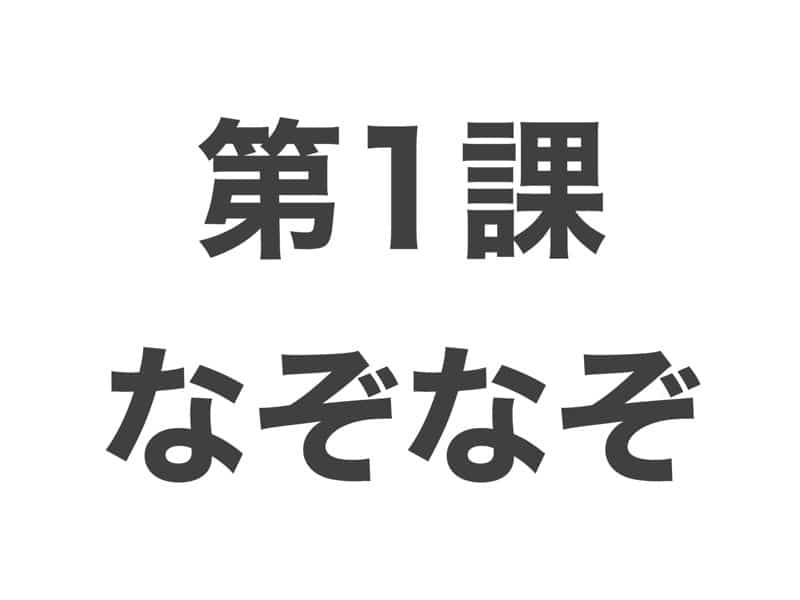新しい言葉
| 始める | Start |
| 心配する | Worry |
| それでも | Even so / Nevertheless |
| 親 | Parent |
| 口をだす | To interfere |
| いけない | Must not / Should not |
| ある日 | One day |
| 〜って | “They said…” |
| なぞなぞ | Riddle |
| 手を止める | Stop what you’re doing (literally “stop your hands”) |
| 場面 | Scene / Situation |
| 口々に | All speaking at once |
| そこで | And then / At that moment / So |
| 相手 | Partner / Opponent / The other person / The person you’re talking to |
| 文化 | Culture |
| 学ぶ | Learn |
| 広げる | Expand / Broaden / Spread out |
いっしょに考えましょう
- Can you speak any foreign languages besides Japanese?
- Do you like studying foreign languages?
- Are you currently facing any difficulties in studying Japanese?
読みましょう
My child started studying English at elementary school. I thought it would be good if they became able to speak English, but at the same time, I worried that it might be difficult and they might end up hating it. Even so, I thought that as a parent, I shouldn’t interfere and make the child dislike English, so I didn’t ask, “What did you study today?”
One day, my child said, “Mom, children in other countries wash their faces before going to bed. Do you know why?” At first, I didn’t quite understand what my child was saying, and thinking it was just another riddle, I stopped cooking. Then, during English class, a scene came up where the father told the children, “You should wash your face before going to bed.” An unexpected story began. One of the students asked the teacher, “We brush our teeth at night, but do they also wash their faces?” Then, everyone started speaking one after another, saying, “I do” or “I don’t.”
At that point, the teacher said, “You all takes a bath and washes your face at night, but in the world…” I think the teacher didn’t explain further because it’s difficult to explain cultural differences to elementary school students. After hearing this, I thought, “Children are learning something important—broadening their view of the world and expanding their way of seeing things.” I began to look forward to the kind of story my child would tell me next.
答えましょう
A
- What kind of person is the author?
- What did the author think about children learning English?
- Why doesn’t the author ask the children about their English studies?
- Why did the author think it was a riddle?
- What kind of story did the children share?
- What did one of the students say?
- What did the teacher do when the children started saying different things all at once?
- How did the author feel after listening to the children’s stories?
- Why do you think the author started looking forward to the next story?
使いましょう
まとめましょう
- What happened during the English lesson?
- What did the teacher try to teach the children?
- How did the author come to feel about learning English?
話しましょう
- How is your Japanese study going? Is there anything you felt glad about when studying Japanese? What is it? What can you do when you study a foreign language?
- When you came to Japan, what did you notice was different from the place where you grew up? What did you think was different, and how did you feel about it? Why do you think things are that way in Japan?






コメント